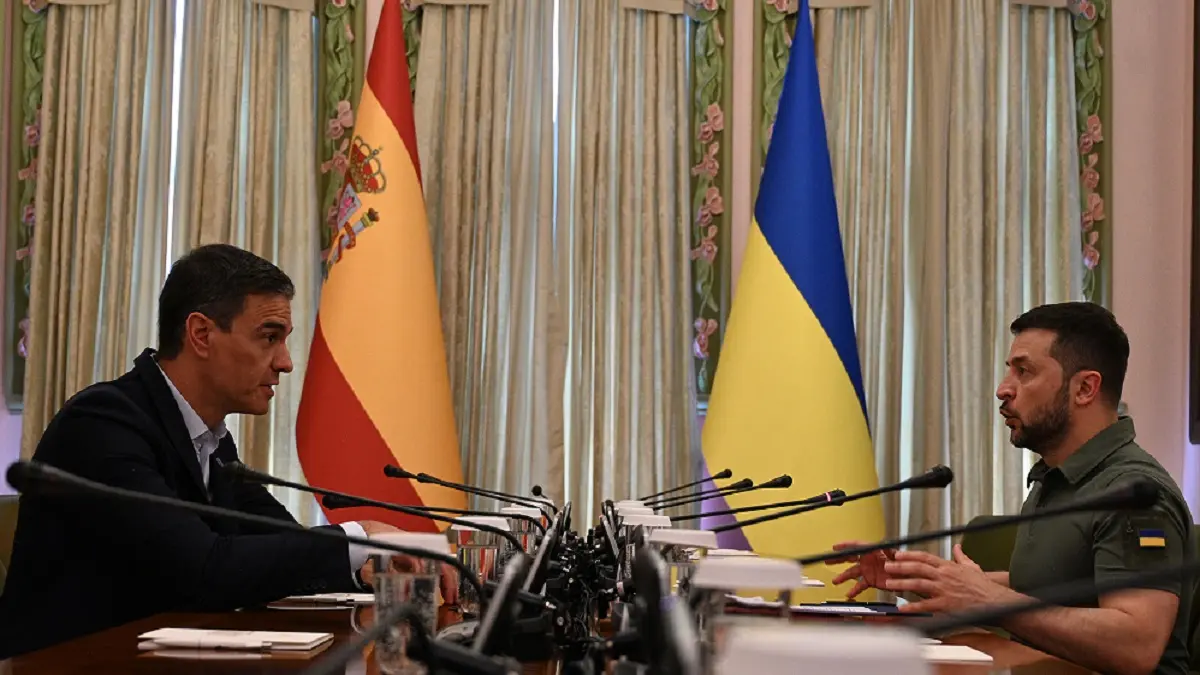Strategic partnership and taboos in the EU-CELAC relationship

It is one of the main axes of the Spanish rotating presidency, Although it is being held in Brussels, Madrid aspires to the summit of the heads of State and Government of the European Union (EU) and the Community of Latin American and Caribbean States (CELAC) to relaunch an alliance that has come ostensibly to less, boost the international influence of this side of the Atlantic and allow the Ibero-American shore of this ocean to strengthen its own political and economic alternatives
The simple statement of issues to be addressed has set the bar high: strengthening cooperation for peace and stability at multilateral and global levels, trade and investment, economic recovery, efforts to combat climate change, research and innovation, and justice and security. The so-called Global Gateway, the EU's global connectivity strategy to put the Sustainable Development Goals back on track, is planned to be at the core of discussions on how to ensure a fair ecological and digital transition on the ground, tackle inequalities, develop strategic industries and build strong and diversified supply chains between the EU and its partners.
Achieving such ambitious goals should be reflected, first of all, in a final communiqué that makes this hypothetical renewed strategic partnership clear, and secondly in the corresponding roadmap to complete the essential stages for its achievement.
It seems, however, that the political and economic differences between the two conglomerates are far from being tempered. There have been no noteworthy advances in the most important process, that of the long-awaited agreement between the EU and Mercosur, the latter currently chaired by Brazilian President Luiz Inacio Lula da Silva. In addition to his differences in the agricultural and industrial chapters between the two blocs, Lula has been on the verge of absenting himself from the meeting. The reason, according to unofficial Brazilian sources, would have been the alleged invitation extended by the president of the Spanish Government to the Ukrainian President, Volodymyr Zelensky, to also be present at the summit as a special guest.
According to such sources, Sánchez would have acted as usual in Spain, that is, without consulting with anyone except his own, which would have noticeably irritated both Lula and his Argentine colleague, President Alberto Fernández. The background is more serious than it seems, because the current and unquestionable support of the EU for Zelensky's Ukraine is not shared by the leaders of Latin America, who prefer to move between those who openly support Vladimir Putin's Russia and a strong abstention in the United Nations votes to condemn the aggression against Ukraine or sanction the alleged war crimes committed by the regular or mercenary forces of the aggressor.
It is true that Chile, the country with the most established democratic genes, could conclude an agreement with the EU before the end of the Spanish semester at the helm of the EU, and that other new agreements could also be concluded under the umbrella of the Andean Development Corporation (CAF), which can give impetus to the better articulation and cohesion of the continent. But new disagreements have also arisen, especially with the dictatorships of Cuba, Venezuela and Nicaragua, regimes that Lula aspires to remove from their condition of increasing isolation from the international community.
It is already an axiom that tyrannies do not like witnesses. Venezuela has confirmed this by rejecting the presence of European observers in the presidential elections scheduled for 2024. As is usual in totalitarian communist regimes, either there is only one party, ○ where other formations are allowed to exist, they are welcomed or candidates with prospects of winning are eliminated, legally even physically. This is what Putin has done with his opponents, and what the Nicaragua of the new incarnation of the Ceausescu, with the Daniel Ortega-Rosario Murillo couple, has practiced.
In Venezuela, the opposition candidate María Corina Machado, who is leading all the polls to run on behalf of the entire opposition against Nicolás Maduro, has been politically disqualified - what a coincidence! - maneuver condemned by the European Parliament, in whose statement the MEPs also show their "concern" about the evolution of the Venezuelan regime. Under Chavismo-Madurismo Venezuela has 90% of the population in poverty or on the poverty lines, and this despite the fact that almost eight million Venezuelans! they have left the country while 280 political prisoners are still rotting in the dungeons of the regime.
The European Parliament denounced at the same session the increasingly harsh repression of the Cuban dictatorship, while offering a corrective to the head of European diplomacy, Josep Borrell, for his recent stay in Cuba to normalize relations between Brussels and Havana, but avoiding disturbing the Castro regime in the slightest by refusing both to meet with members of the highly guarded dissent and to demand the release of political prisoners. Cuban President Miguel Diaz-Canel, who was on an official visit to Portugal on his way to Brussels, has countered by denouncing the EU for "opaque and manipulative behavior."
Despite its lower international weight, Nicaragua seems to have gone even further in its totalitarian and repressive practices. In addition to getting rid of its most notorious opponents and dissidents, expelling them from the country, stripping them of their nationality and confiscating their assets, the Ortega-Murillo tandem has revolted against any charitable organization, including the Catholic Church, that questions its paranoid totalitarianism.
They are, then, the gigantic elephants in the room, the stones at the starting point on the way to a summit that Spain aspires to make a point of a renewed relationship between Europeans and Ibero-Americans that results in greater prosperity and influence of both. Let us remain hopeful, although it is to be feared that the results will be much lower than the great lofty expectations.

